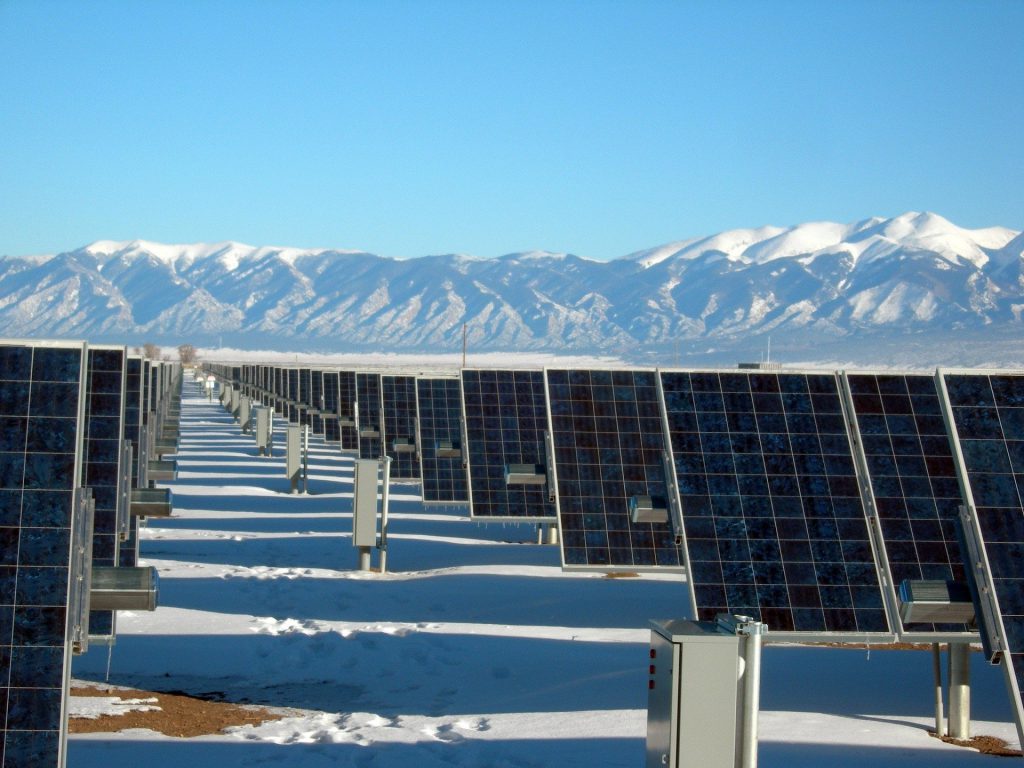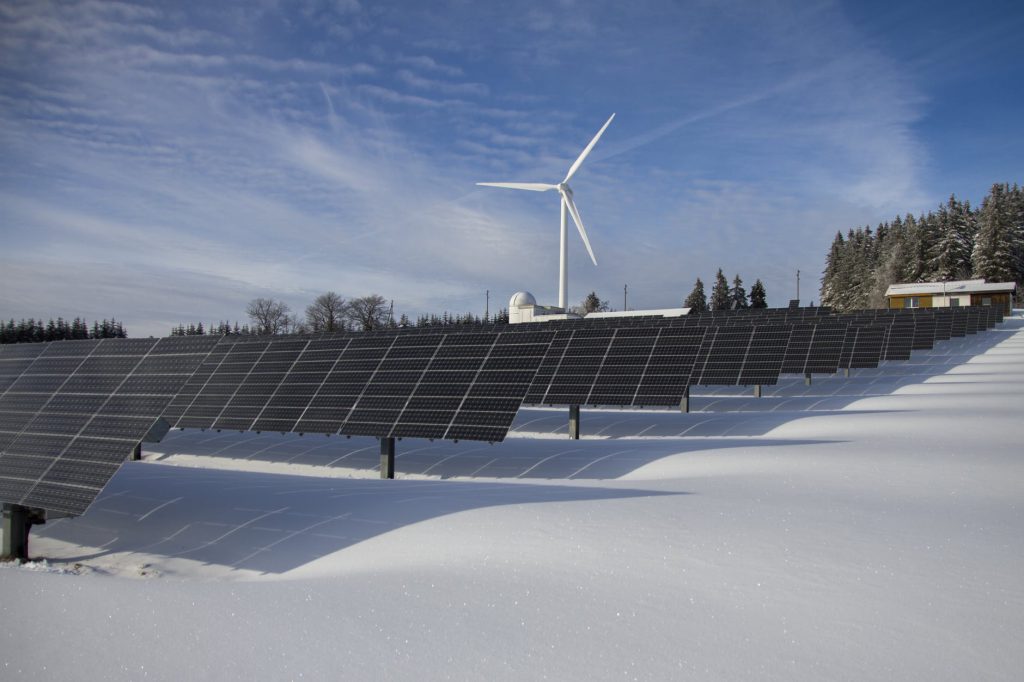Even though the bitter cold days we have been experiencing in California is nothing like the biting cold of the polar vortex that is plaguing the Midwest, we have been answering a lot of calls from concerned customers asking about their solar panels. The good news is that even when it is cold outside, your solar panels in Winter are still functioning and using the sun to power your home.
Energy from Light – Not Heat

As soon as the frigid temperatures hit, people began to display their concern that their panels are not working. But, the simple science behind solar panels explains why your panels still produce energy on icy-cold days. A solar PV panel creates energy from the sun’s radiation, (i.e. light), not the sun’s heat. A solar panel is made up of a layer of silicon cells that interact with sunlight. When the sun’s radiation hits a silicon cell, electrons are set into motion and begin a flow of electric current. This means, as long as the sun is hitting a solar panel, the solar panels will generate electricity.
Your Solar Panels In Winter May Produce More
What is surprising to many consumers is that when the beautiful California sun is shining on these bitter cold days, their panels are probably producing more electricity than they would produce in the middle of the sun-saturated summer. PV solar panels work most efficiently in colder temperatures. A cold, sunny environment is the optimal operating condition for your solar panels. The hotter the sun burns down, the less efficient your panels become.
What About Snow?

Cold temperatures will not impede your panels working at their highest efficiencies. However, other weather conditions may impact how much energy your system can provide you. First, remember the science. Your solar panels are triggers to produce electricity from the rays of the sun, not the heat of the sun. This means weather conditions that take away the sun’s ability to connect with your panels could impact your panels efficiency. Deep levels of snow covering your panels can impact production. However, the warms of the sun beating on the panels and the snow typically causes quick snow melts. This means your panels become exposed to the sun again and are typically nice and clean from the snow’s runoff, thus increasing your panels production again.
Still Not Convinced?

If the basic science behind your residential or commercial solar panels still has not convinced you that your solar panels in winter are still working in cold weather, it is time to connect with your local residential solar installer. Your installer can provide you with a monitoring system that will allow you to track how much energy each panel is producing. It is also always a good idea to have an annual system tune-up to ensure that all of the system pieces are working well together.
If you continue to have questions regarding your solar installation or would like to learn more about how a residential or commercial solar system could benefit you, be sure to reach out to your Energy Consultants at Del Sol Energy.
Here are some articles you may find helpful:
Top 10 Questions You Should Ask Any Solar Company
What are my Solar Finance Options?
Why are Solar Mounting and Racking Systems So Important
Do Solar Panels Add Value to My Home?
An Update on Tesla and Solar City


Leave a Reply